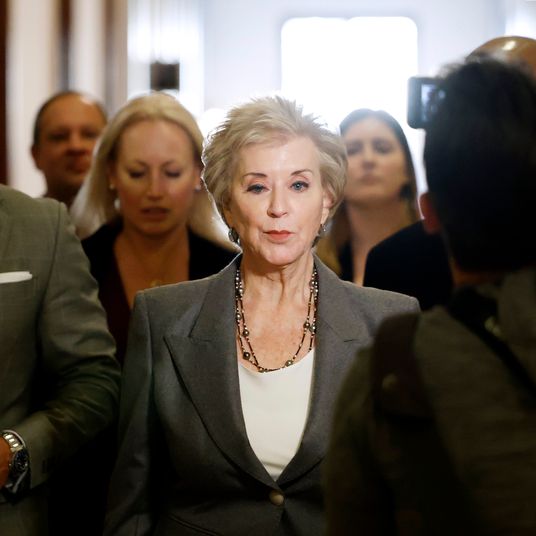
Exxon Mobil spent more than three decades treating man-made climate change as a scientific reality in internal documents, even as the company portrayed it as a dubious theory in its public communications — or so reporters, science historians, and many of the company’s current and former employees have alleged.
The charge first gained prominence in 2015, when reporters at InsideClimate News and the Los Angeles Times got their hands on Exxon’s archived papers — documents that appeared to show that the company had recognized climate change as a reality since the early 1980s. In response to the ensuing controversy, the company implored the public to discount the press’s “cherry-picked statements,” and “read all of these documents and make up your own mind.”
Harvard researchers Naomi Oreskes and Geoffrey Supran followed that advice. They collected all of the internal company files at issue in the controversy, along with the internal research that Exxon released in response to it. They then coded each document to characterize its stance on whether climate change was real; driven by human behavior; a serious problem; and solvable (when electorates accept that climate change is all four of these things, they tend to support a robust policy response to combat it).
Oreskes and Supran then applied the same methodology to 36 “advertorials” on climate change that Exxon published in the the New York Times between 1989 and 2004. After their methods and findings withstood the scrutiny of peer review, the researchers published their results in the journal Environmental Research Letters this week. In the Times, Oreskes and Supran summarized their conclusion:
Exxon Mobil misled the public about the state of climate science and its implications. Available documents show a systematic, quantifiable discrepancy between what Exxon Mobil’s scientists and executives discussed about climate change in private and in academic circles, and what it presented to the general public.
…We found that, from as early as the 1970s, Exxon Mobil (and its predecessors Exxon and Mobil) not only knew about emerging climate science, but also contributed research to it. Scientific reports and articles written or cowritten by Exxon Mobil employees acknowledged that global warming was a real and serious threat. They also noted it could be addressed by reducing fossil fuel use, meaning that fossil fuel reserves might one day become stranded assets.
…[A]ccounting for reasonable doubt given the state of the science at the time of each document, roughly 80 percent of the company’s academic and internal papers acknowledged that climate change is real and human-caused. But 81 percent of their climate change advertorials in one way or another expressed doubt.
It’s hard to overstate how much Exxon needs you to believe that these allegations aren’t true. Say what you want about tobacco companies — at least their efforts to systematically mislead the public about the downsides of their product didn’t risk hastening the demise of human civilization across the entire planet. But the study threatens much more than Exxon’s reputation for moral probity (such as it is) — it also threatens the company’s bottom line.
Exxon is currently fending off lawsuits from investors who claim that the company deliberately misled them about how big a financial risk climate change posed to the value of its reserves; current and former employees who believe that they were similarly deceived when they opted to invest in Exxon shares as part of a company-sponsored savings plan; and three California communities that believe the company knowingly contributed to rising sea levels.
Meanwhile, attorneys general in New York and Massachusetts are investigating Exxon for a host of potential investor and consumer-protection violations.
So, a peer-reviewed, Harvard study that claims to empirically establish the company’s mendacity about climate change is the last thing that Exxon needs right now. The oil giant has every incentive to hit back against the research with everything it has — and, apparently, they don’t have much.
In a comment to the Harvard researchers, Exxon Mobil claimed that its statements on public policy and climate science had “always reflected the global understanding of the issue.”
Always.
Here’s how the company “reflected the global understanding” of climate change in a 1997 advertorial:
Let’s face it: The science of climate change is too uncertain to mandate a plan of action that could plunge economies into turmoil…We still don’t know what role man-made greenhouse gases might play in warming the planet.
Here’s how the Intergovernmental Panel on Climate Change characterized that understanding in the same year:
Human activities (primarily the burning of fossil fuels and changes in land use and land cover) are increasing the atmospheric concentrations of greenhouse gases, which alter radiative balances and tend to warm the atmosphere[.]
It’s worth noting that “pursuing solutions” to climate change and hurting Exxon’s shareholders aren’t mutually exclusive activities. In fact, it’s difficult to see how the threat of climate change could ever be sufficiently addressed without radically depreciating the value of Exxon’s oil reserves. Which is why the study’s allegations are the opposite of “preposterous.”






























